Gazyva (obinutuzumab) 1000mg/40ml
Gazyva (obinutuzumab) 1000mg/40ml is a prescription medicine used with the chemotherapy drug, chlorambucil, to treat chronic lymphocytic leukemia (CLL) in adults who have not had previous CLL treatment
Gazyva (obinutuzumab) 1000mg/40ml
Gazyva (obinutuzumab) 1000mg/40ml What is the most important safety information I should know about GAZYVA?
Tell your doctor right away about any side effect you experience. GAZYVA can cause side effects that can become serious or life-threatening, including:
Hepatitis B Virus (HBV): Hepatitis B can cause liver failure and death. If you have a history of hepatitis B infection, GAZYVA could cause it to return. You should not receive GAZYVA if you have active hepatitis B liver disease. Your doctor or healthcare team will need to screen you for hepatitis B before, and monitor you during and after, your treatment with GAZYVA. Sometimes this will require treatment for hepatitis B. Symptoms of hepatitis include: worsening of fatigue and yellow discoloration of skin or eyes
Progressive Multifocal Leukoencephalopathy (PML): PML is a rare and serious brain infection caused by a virus. PML can be fatal. Your weakened immune system could put you at risk. Your doctor will watch for symptoms. Symptoms of PML include: confusion, difficulty talking or walking, dizziness or loss of balance, and vision problems
Who should not receive GAZYVA? Do NOT receive GAZYVA if you have had an allergic reaction (e.g., anaphylaxis or serum sickness) to GAZYVA. Tell your healthcare provider if you have had an allergic reaction to obinutuzumab or any other ingredients in GAZYVA in the past
What are the additional possible serious side effects of GAZYVA?
Tell your doctor right away about any side effect you experience. GAZYVA can cause side effects that may become severe or life-threatening, including:
Infusion-Related Reactions (IRRs): These side effects may occur during or within 24 hours of any GAZYVA infusion. Some IRRs can be serious, including, but not limited to, severe allergic reactions (anaphylaxis), acute life-threatening breathing problems, or other life-threatening IRRs. If you have a reaction, the infusion is either slowed or stopped until your symptoms are resolved. Most patients are able to complete infusions and receive medication again. However, if the IRR is life-threatening, the infusion of GAZYVA will be permanently stopped. Your healthcare team will take steps to help lessen any side effects you may have to the infusion process. You may be given medicines to take before each GAZYVA treatment. Symptoms of IRRs may include: fast heartbeat, tiredness, dizziness, headache, redness of the face, nausea, chills, fever, vomiting, diarrhea, rash, high blood pressure, low blood pressure, difficulty breathing, and chest discomfort
Hypersensitivity Reactions Including Serum Sickness: Some people receiving GAZYVA may have severe or life-threatening allergic reactions. This reaction may be severe, may happen during or after an infusion, and may affect many areas of the body. If an allergic reaction occurs, your doctor will stop the infusion and permanently discontinue GAZYVA
Tumor Lysis Syndrome (TLS): Tumor lysis syndrome, including fatal cases, has been reported in patients receiving GAZYVA. GAZYVA works to break down cancer cells quickly. As cancer cells break apart, their contents are released into the blood. These contents may cause damage to organs and the heart and may lead to kidney failure requiring the need for dialysis treatment. Your doctor may prescribe medication to help prevent TLS. Your doctor will also conduct regular blood tests to check for TLS. Symptoms of TLS may include nausea, vomiting, diarrhea, and tiredness
Infections: While you’re taking GAZYVA, you may develop infections. Some of these infections may be fatal and severe, so be sure to talk to your doctor if you think you have an infection.
| Quantity | 100 mg |
|---|
Be the first to review “Gazyva (obinutuzumab) 1000mg/40ml” Cancel reply
You must be logged in to post a review.
Related products
Medications
Medications
Medications
Medications
Medications
Medications
Medications
Medications

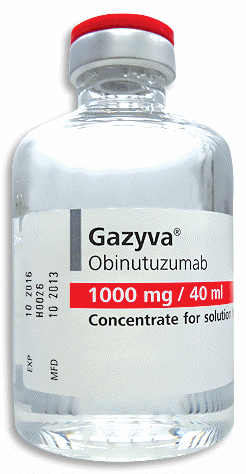

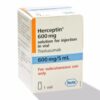
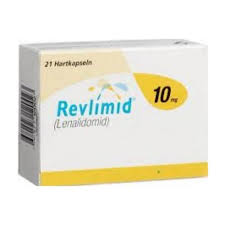
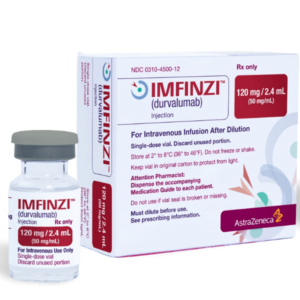
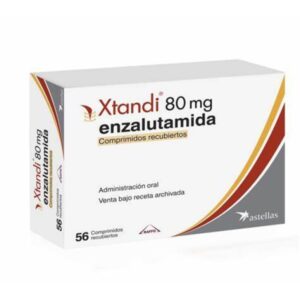
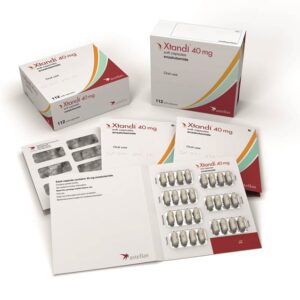
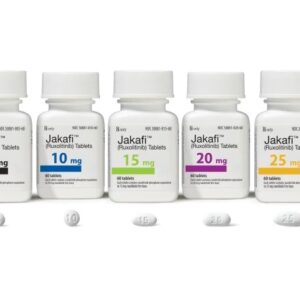
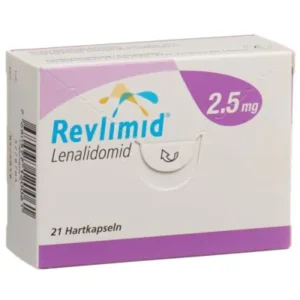

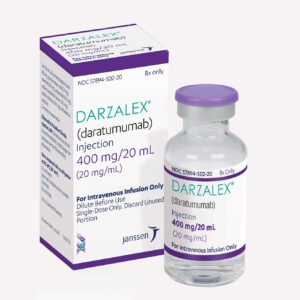
Reviews
There are no reviews yet.